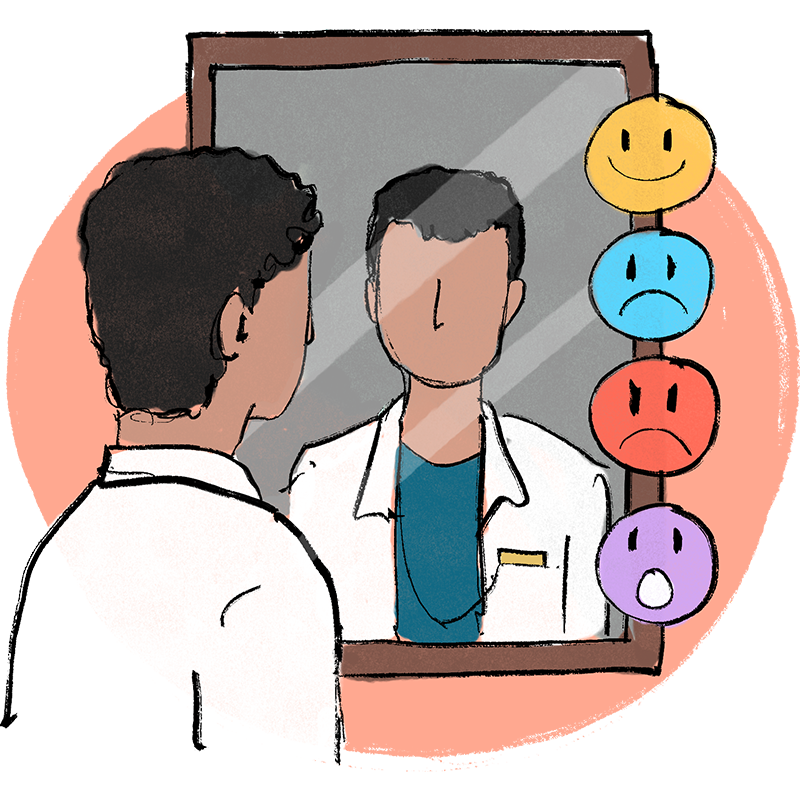Emotional wellbeing
Emotional well-being is crucial for any individual. This is also true for clinicians who deliver healthcare for others. Physician burnout impacts the quality of patient care. Unfortunately, professional burnout among healthcare professionals is increasing worldwide. It is high time that we reflect on our mental anguish, aspirations, ambitions and attitudes before it is too late.

Ms. Leonor Marques shares her inspiring journey to becoming a physiotherapist specialising in palliative care. She offers insights into her professional experiences and strategies to maintain her psychological well-being while working in this challenging yet rewarding field. There is no health without mental health.
Being a clinician can be extremely satisfying as well as stressful. Unfortunately, much of the research on burnout worldwide is from oncology. However, this does not imply that other branches of medicine or, for that matter, other professions are immune to the impact of stress and strain.
We should also acknowledge that a significant risk factor of work-related stress is due to overwork in resource-poor settings. No amount of multi-tasking, efficiency audits, improvement of operational processes or well-being initiatives can replace the impact of a robust, harmonious team that is adequately staffed. This is supported by a high-impact review published in the Lancet in 2004, showing that despite the technological advances made in medicine over the past century, the density of human resources for healthcare delivery is an essential determinant of the health outcome of the population.
Let us learn from Prof Rajiv Sarin, Professor of Radiation Oncology and In-Charge Cancer Genetics Unit at Tata Memorial Hospital & Advanced Centre for Treatment Research & Education in Cancer (ACTREC), Mumbai, about how he feels about mental health at work. Prof Sarin has also been a Director of ACTREC and manages a large team, and his words resonate with many doctors around the country.
References:
- Anand, S and Bärnighausen,T (2004) “Human Resources and Health Outcomes: Cross-Country Econometric Study.” Lancet 364 (9445): 1603–9.10.4103/ijmpo.ijmpo_168_17 (Access here)
- Hodkinson A, Zhou, A, Johnson J, Geraghty K, Riley R, Zhou A et al. Associations of physician burnout with career engagement and quality of patient care: systematic review and meta-analysis BMJ 2022; 378 :e070442 doi:10.1136/bmj-2022-070442 (Acess here)
- Isaiah. 2023. “Physician Burnout Will Burn All of Us.” The Century Foundation. October 25, 2023.
- Koval KW, Lindquist B, Gennosa C, Mahadevan A, Niknam K, et al. (2020) First look at emergency medical technician wellness in India: Application of the Maslach Burnout Inventory in an unstudied population. PLOS ONE 15(3): e0229954.
- Wright T, Mughal F, Babatunde OO, Dikomitis L, Mallen CD, Helliwell T.(2022) Burnout among primary health-care professionals in low- and middle-income countries: systematic review and meta-analysis. Bull World Health Organ. 100(6):385-401A. (Acess here)
